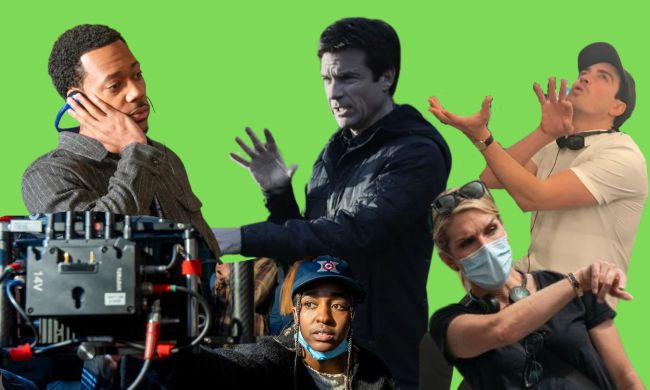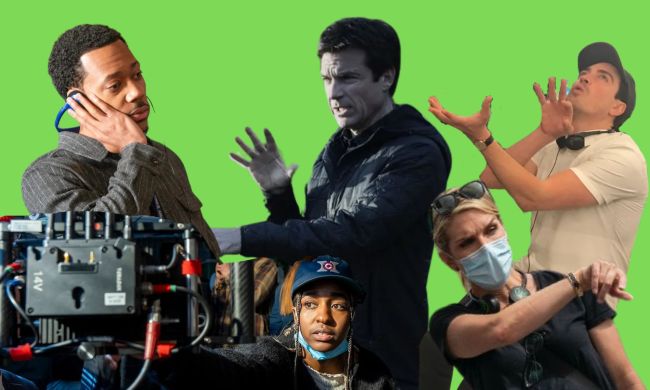Ever watched a TV show and thought, “Wow, this director really gets it”? Then you might be surprised to learn that the person behind the camera wasn’t always there. From legendary icons to rising stars, a growing number of actors are stepping into the director’s chair, bringing a unique perspective and insight to the storytelling process. But what can these Hollywood hyphenates teach us about navigating career evolution?

From Stage to Screen: When Actors Become Directors

Actors transitioning to directing roles bring a unique set of skills and perspectives to the table. In this section, we’ll explore the motivations and challenges faced by actors who make this career leap, and examine the advantages they leverage and the hurdles they must overcome to succeed.

The Actor’s Advantage
Actors possess an intimate understanding of the performance process, enabling them to effectively guide actors and shape scenes. This understanding is rooted in their experience of being on the receiving end of direction, and their ability to interpret and respond to subtle cues from their directors.
- Understanding the craft: Actors know how to break down a scene, understand character motivations, and bring a character to life. This expertise allows them to provide valuable guidance to actors and help shape the overall tone of the scene.
- Building trust and collaboration: Actors have established relationships with their fellow actors, which can foster a strong sense of camaraderie and trust on set. This trust is essential for a smooth creative process, as actors are more likely to take risks and push boundaries when they feel supported by their director.
- Visualizing the story: Actors often have a strong internal vision of a scene, which they can use to translate into tangible direction for the camera and crew. This visual understanding of the story allows them to make informed decisions about camera angles, lighting, and other technical aspects of filmmaking.
- The shift in perspective: Directing requires a new set of skills and responsibilities, including script analysis, shot composition, and editing. Actors must be willing to learn and adapt these new skills, which can be a significant departure from their previous experience.
- Overcoming imposter syndrome: Many actors may initially doubt their directing abilities, feeling pressure to prove themselves in a new role. This imposter syndrome can be a significant barrier to success, as actors may struggle to assert themselves as a director.
- Navigating the technical aspects: Directing involves mastering technical aspects of filmmaking, such as camera angles, shot composition, and editing. Actors must be willing to learn and adapt these technical skills, which can be a significant departure from their previous experience.
- The power of familiarity: Actors often have established relationships with producers, writers, and other industry professionals, which can provide a strong foundation for their directing career.
- Building a reputation: By consistently delivering quality work and demonstrating their directing talent, actors can gradually establish themselves as credible directors within the industry.
- Expanding their creative circle: Directing allows actors to connect with a wider range of individuals, including writers, producers, and crew members, fostering a diverse and enriching creative network.
- TV series: Shows like “Abbott Elementary,” “The Bear,” and “Peaky Blinders” demonstrate the unique perspectives and skills that actors bring to directing roles.
- Film: Movies like “Get Out” and “The Big Sick” showcase the creative vision and technical skills that actors can bring to directing roles.
- Theatre: Plays like “Hamilton” and “The Book of Mormon” demonstrate the acting and directing skills that can be applied to the stage.
Actors who transition to directing roles must be willing to adapt their skills and perspectives to a new set of responsibilities. This can be a challenging process, as they must learn to let go of their focus on performance and take on a more comprehensive creative vision.
Breaking the Mold: Stepping Out of Comfort Zones
DIRECTING demands a new set of skills and responsibilities, requiring actors to relinquish their focus solely on performance and embrace a broader creative vision. This shift in perspective can be daunting, as actors must confront their own limitations and learn to trust their instincts as a director.
Actors who transition to directing roles must be willing to take risks and challenge themselves in new and unfamiliar ways. This can be a challenging process, as they must confront their own limitations and learn to trust their instincts as a director.
The Hollywood Network: Leveraging Existing Connections
Actors often have strong connections within the industry, which can provide valuable opportunities to secure directing gigs and collaborate with experienced professionals. This network can be a significant advantage for actors transitioning to directing roles.
Actors who transition to directing roles must be willing to leverage their existing connections and build new relationships within the industry. This can be a challenging process, as they must navigate the complex web of relationships and alliances that underpin the film and television industry.
Tyler James Williams, who directed an episode of the hit TV series “Abbott Elementary,” began his journey by peppering the show’s producer-director with questions. He realized that his dream of making TV was larger than he anticipated, and that directing required a new set of skills and responsibilities.
Ayo Edebiri, who directed an episode of the TV series “The Bear,” had to rely on her own instincts and experience as an actor to guide her through the directing process. She credits the Directors Guild of America’s First-Time Episodic Director Orientation Program with helping her navigate the technical aspects of directing.
These actors, and many others like them, demonstrate the challenges and opportunities facing actors who transition to directing roles. By understanding the unique perspectives and skills they bring to the table, and by leveraging their existing connections and building new relationships within the industry, actors can successfully navigate this challenging but rewarding career path.
Real-World Applications and Examples
The challenges and opportunities facing actors who transition to directing roles are illustrated in various real-world applications and examples. For instance:
These examples illustrate the diverse range of opportunities and challenges facing actors who transition to directing roles. By understanding the unique perspectives and skills they bring to the table, and by leveraging their existing connections and building new relationships within the industry, actors can successfully navigate this challenging but rewarding career path.
From Set to Director’s Chair: Lessons Learned
When actors decide to direct, they often bring a unique perspective to the filmmaking process. Having spent years in front of the camera, they possess an intimate understanding of the craft, allowing them to approach direction with a distinct voice and vision. However, making the transition from actor to director requires more than just a passion for storytelling. It demands a willingness to learn, adapt, and evolve.
Preparation is Paramount
Successful actors-turned-directors emphasize the importance of immersion in the filmmaking process. This involves actively participating in all stages of production, from script development to post-production. By doing so, they gain a comprehensive understanding of the technical aspects of filmmaking, including shot composition, camera movement, and editing techniques.
Tyler James Williams, who directed an episode of “Abbott Elementary,” exemplifies this approach. He sat in on production meetings, tone meetings, and concept meetings, and even began breaking down the episode outline months in advance. This preparation allowed him to develop a clear vision for the episode and make informed decisions about camera placement and movement.
Finding Your Voice
As actors-turned-directors navigate the filmmaking process, they must also find their unique voice and vision. This involves embracing individuality and drawing upon personal experiences and perspectives. Ayo Edebiri, who directed an episode of “The Bear,” highlights the importance of finding one’s own way of communicating and stressing the need to be open to feedback and collaboration.
Edebiri’s experience with the Directors Guild of America’s First-Time Episodic Director Orientation Program also underscores the value of learning from others. The program provided her with a crash course on TV directing and allowed her to learn from experienced instructors, including Paris Barclay, Keith Powell, and Dr. Valerie Weiss.
The Power of Observation
Actors-turned-directors often cite the influence of watching and studying the work of other filmmakers. This involves paying attention to detail, analyzing the nuances of performance, composition, and lighting, and cultivating a critical eye for storytelling. By doing so, they can refine their own vision and develop a distinct style.
Williams’ approach to directing “Abbott Elementary” demonstrates the power of observation. He paid close attention to the show’s tone and style, using this knowledge to inform his decisions about camera placement and movement. The result was a cohesive and engaging episode that stayed true to the show’s vision.
Conclusion
The evolution of actors into directors, as explored in IndieWire’s article, reveals a compelling narrative about ambition, artistic control, and the shifting dynamics of the entertainment industry. These performers, having intimately understood the nuances of character and storytelling, often seek to translate that knowledge into crafting narratives from a director’s lens. The article highlights key instances where actors have successfully bridged this gap, demonstrating that their on-screen experiences provide a potent foundation for directing. This trend has profound implications for the future of filmmaking. It challenges the traditional hierarchical structure, blurring the lines between creative roles and potentially democratizing the process of storytelling. As actors increasingly take the helm, we can anticipate a surge in fresh perspectives and a more diverse range of voices shaping the narratives we consume. Will this lead to a renaissance of auteur-driven filmmaking, where performers become the architects of their own visions? Or will it usher in an era of more collaborative storytelling, where the lines between actor and director further dissolve? Only time will tell, but one thing is certain: the convergence of these creative forces promises to be a fascinating and transformative chapter in the evolution of television and film.

